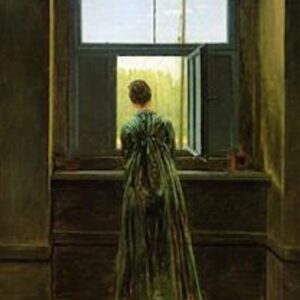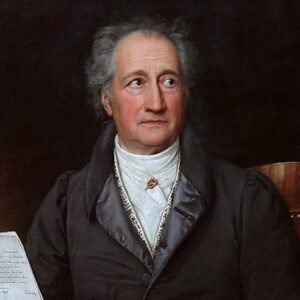I always thought that the song Troy by Sinéad O’Connor was a song about romantic love. But she explained, some years ago, that the song is really about her mother. Sinéad did not like her mother, who died in a car crash when Sinéad was eighteen and who she described as extremely physically and mentally abusive. I’m going to continue to refer to Sinéad O’Connor as simply Sinéad, by the way, since I feel that intimately about her and since she will always be Sinéad to me.
As most people know, Sinéad died this past July. I’m assuming that this was suicide, though I guess this has not been confirmed. She had certainly attempted suicide many times and was never in anything that could be described as good mental health. I don’t know what to say about any of this or about what the song Troy was actually trying to communicate, in her mind.
I simply know that this extremely complex person who was often in a high degree of pain and distress created some extremely beautiful and powerful music. It was music that had a huge impact on me and my life — music which I would listen to over and over again, on headphones, especially when I was a late-teenager.
I loved all of the songs on her album The Lion and The Cobra and on the follow-up album I Do Not Want What I Haven’t Got, which included the cover of Prince’s song Nothing Compares 2 U, which made Sinéad world-famous, probably mostly because of the video for the song, in which Sinéad is filmed close-up wearing a black turtleneck and sporting her famous shaved head. She sings so directly and with such vulnerability that it was, and remains, quite difficult to watch. But also wonderful. Painful. Strange. Tender.
She was not afraid to do this. Or perhaps she was, and just did it anyway. But all of her songs are more or less like that. They are of the ripped-open category. That’s to say, Sinéad was willing to use her incredible gift of a voice in order to actually communicate things with that voice that usually do not get communicated in public. I’m not sure if they get communicated in private, either, come to think of it.
I actually don’t think there are words that properly convey what Sinéad conveyed with her music and this is precisely the point. The words mostly get in the way. They are too precise or not precise enough. The things that Sinéad was trying to say are not communicated as declarative sentences or explanations or anything like that. More than anything, what Sinéad did, I think, was to make sounds. Her music, I guess I would say, was fundamentally pre-verbal. Even though she sang words and lines and her lyrics are often quite poetic. But that’s not really what makes the songs so incredible. Always, in every song, Sinéad was working herself up with words in order to make that leap beyond them.
In Troy, for instance, Sinéad sings many words and some of the words are even from the poetry of William Butler Yeats, specifically the stuff about there not being any Troy for you to burn, which is taken from Yeats’s No Second Troy. Also, as mentioned before, this may all be about Sinead’s mother, in some way difficult to figure out. But it doesn’t really matter. I didn’t know about the Yeats reference when I listened to the song as a teenager and it didn’t matter. I just knew that the song was intense and beautiful and that it communicated something directly to my soul. It had truth, it seemed to me. Often, I would skip over the song when I was listening to the album because I didn’t have the strength to listen to it at that particular moment. Often, the song would just make me cry, and I don’t mean tear up a little, I mean that I would bawl like an infant and I didn’t want always to be doing that, say, on the bus or in the back of some highschool class with my hat pulled down low.
I don’t know why the song is so emotionally powerful. I mean, I’m not sure what a deep musical analysis of the song would reveal. Probably not much. I read once that the song has basically two chords because those were the only two chords Sinead knew on the guitar when she wrote the song. This pleases me, somehow. I know also that the song builds slowly and then, at a certain point, Sinead has worked herself up to the point, lyrically, where she can start to utter her ‘ohs’ and ‘no’s’ and ‘yeohs’ and ‘wo-oh-ohs’. That is where and when Sinéad is truly Sinéad. She comes very close to turning into a wolf at the end of Troy and I mean this quite seriously. The mournful howling of a wolf in the middle of the night. A scary sound and all the more scary because of how beautiful it is.
I think, sometimes, when I listen to the music of Sinéad O’Connor, I think of the final scene of Melville’s Billy Budd. The sailor, Billy Bud, is in the process of being hanged. Suddenly, and inexplicably, he utters as his final words, “God Bless Captain Vere,” that’s to say, God Bless the man who sentenced him to be hanged. And Billy, a stutterer, utters these words with “the clear melody of a singing-bird on the point of launching from the twig.” The signal to hang Billy Budd is then given and, “at the same moment it chanced that the vapory fleece hanging low in the East, was shot thro’ with a soft glory as of the fleece of the Lamb of God seen in mystical vision, and simultaneously therewith, watched by the wedged mass of upturned faces, Billy ascended; and, ascending, took the full rose of the dawn.”
The music of Sinead O’Connor, I would say, was always something like that, something like a terrible ascending that, in the end, takes the full rose of dawn.
Morgan Meis has a PhD in Philosophy and is a founding member of Flux Factory, an arts collective in New York. He has written for n+1, The Believer, Harper’s Magazine, The Virginia Quarterly Review and is a contributor at The New Yorker. He won the Whiting Award for non-fiction in 2013. Morgan is also an editor at 3 Quarks Daily, and a winner of a Creative Capital | Warhol Foundation Arts Writers grant. A book of Morgan’s selected essays can be found here. His books from Slant are The Drunken Silenus. and The Fate of The Animals He can be reached at morganmeis@gmail.com.





